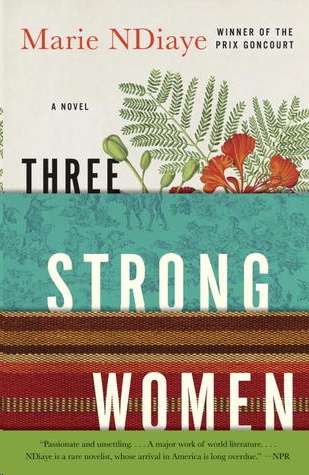
Three Strong Women
کتاب های مرتبط
- اطلاعات
- نقد و بررسی
- دیدگاه کاربران
نقد و بررسی

June 25, 2012
Three Senegalese women rely on their unshakable sense of self when faced with great disappointment in this novel from NDiaye, the first black woman to win France’s Prix Goncourt. Three loosely interwoven sections tell stories of women whose struggle for self-preservation has irrevocably wounded them. When French lawyer Norah, summoned to Senegal by her estranged father, arrives, she finds her beloved brother, Sony, in jail for murder and her father grown old. In Part II, Rudy brings Fanta, his Senegalese wife, back to France. Fanta has worked hard to pull herself out of poverty, only to now find herself plunged back in when the wealth Rudy promised never materializes. In Part III, Khady, a young woman who has never heard of Europe, is kicked out by her late husband’s family to go live with Fanta in France. But she falls in with a questionable man who persuades her to make the dangerous journey with him. Each woman calls upon great strength to survive amid failure and humiliation, a feat that goes unnoticed by those around them. NDiaye’s quiet intelligence is made apparent by the complexity of her characters and her intuitive prose in this subtly beautiful novel.

Starred review from August 1, 2012
The three women personifying the complicated relationship between France and Senegal in French-born NDiaye's tripartite novel, winner of France's Prix Concourt in 2009, need all the strength they can muster as they struggle to survive. The novel opens with 38-year-old lawyer, Norah. Half-Sengalese, she was raised in France by her French working-class mother after her businessman father returned to his native Senegal, taking with him her beloved younger brother, Sony. When her once-powerful father asks her to visit, she drops everything to return to Senegal, where she finds him a seemingly broken man. Sony is in prison, charged with murdering the old man's newest wife, the mother of two small girls he keeps locked in a room with a nursemaid named Khady. Soon, Norah's Parisian live-in-lover, whom she no longer trusts, shows up in Dakar with Norah's little daughter, Lucie, and Norah is increasingly overwhelmed by conflicting pulls and loyalties. In the second section, Fanta is a Senegalese woman seen only through her French husband Rudy's eyes. Rudy's father ran a Senegalese vacation resort, possibly with Norah's father, although the timeline and specifics remain vague. A bookish intellectual, Fanta was a successful teacher in Dakar before they married, but she has moved with him to France, where she finds herself unemployable. NDiaye follows Rudy, an emotionally damaged, abusive husband (not unlike Norah's father and not unsympathetically drawn), through a disastrous day that shows the precarious position into which he has placed Fanta and their child as immigrants. The third section focuses on Khady. No longer caring for Norah's nieces and suddenly widowed after a short marriage, Khady is forced to live with her in-laws. They don't want her and pay a stranger to get her headed to France, supposedly to live with her cousin, Fanta. On the overland trip to the boat that will supposedly take her overseas, Khady faces one calamity after another. She thinks she has found a protector in a young man, but his desperation to escape Senegal proves greater than his affection or loyalty. Unrelenting in its anger, pain and sorrow, but hard to put down.
COPYRIGHT(2012) Kirkus Reviews, ALL RIGHTS RESERVED.

July 1, 2012
The African immigrant experience is personified by the women whose lives briefly intersect in this disturbing novel published in France in 2009. An attorney, Norah was raised in France after being abandoned by her Senegalese father, a controlling businessman who returned to Dakar with his preferred boy child in tow. Now a pathetic shadow of his former self, he looks to Norah for help with legal troubles. Khady, a childless widow, is forced from her in-laws' home with nothing but a handful of clothing, a loaf of bread, and the address of Fanta, a cousin living in France. Attempting the illegal trek from Senegal, Khady summons every ounce of wit and strength to endure betrayal and degradation at the hands of the weak man she desperately needs to trust. Awareness of Fanta's fate comes through the increasingly crazed interior monolog of her husband, Rudy, which appears in an overly long section of a book whose praised lyricism may have suffered in the translation. What remain are a moody, surreal atmosphere and the suspicion that these women, in their quest for identity and independence, have won a pyrrhic victory at best. VERDICT Winner of the Prix Goncourt, Ndiaye's novel, though an emotionally difficult read, can be recommended to those who appreciate authors like Yasmina Khadra or Khaled Hosseini.--Sally Bissell, Lee Cty. Lib., Ft. Myers, FL
Copyright 2012 Library Journal, LLC Used with permission.

























دیدگاه کاربران